Free Data Analytics Course
Jumpstart your journey with 25 essential learning units in data analytics. No cost, just knowledge.
It’s clear that the demand for data analysts is continuing to increase. According to the US Bureau of Labor Statistics, these roles will grow by 23% in the coming years. But what’s less clear is how much data analysts can expect to make, especially when they’re just starting out. Some entry-level data analysts make twice as much as others, and from the outside looking in, it’s not always clear why.
Confused? Then you’re in the right place. Below, we’ll detail all of the factors that affect what an entry-level data analyst makes so that you can choose the career path that suits your goals and salary expectations.
Ready? Then let’s get started.
How Much Does an Entry-Level Data Analyst Make on Average?
Data analyst positions are highly in demand and pay well—many entry-level data analytics make more than six figures. But these salaries can vary greatly, depending on role, industry, and location. Let’s break down all of those factors.
Entry Level Data Analyst Salary – By Role
Depending on your role as a data analyst, you can expect to see some variation in your salary. Here are some different roles at different levels of compensation.
Data Analyst Intern
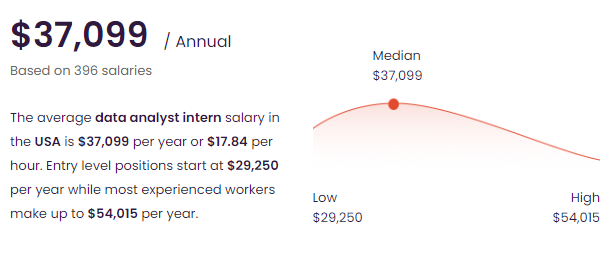
The average hourly wage for a data analyst intern is $37,000.
Junior Data Analyst
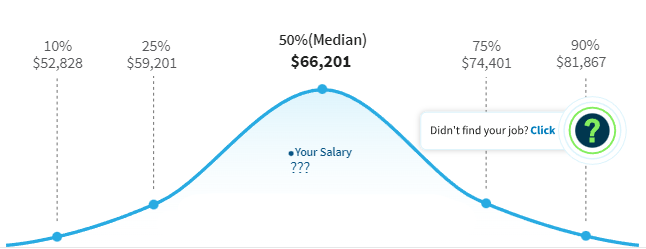
The average salary for a junior data analyst is $66,200.
Business Analyst
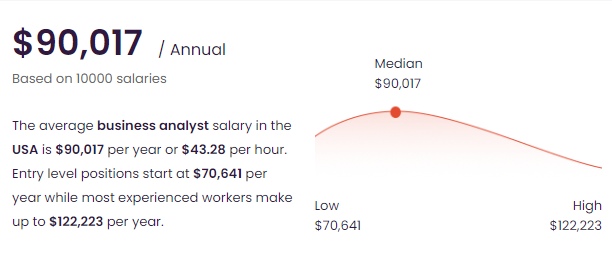
The average salary for a business analyst is $90,000.
Quantitative Analyst
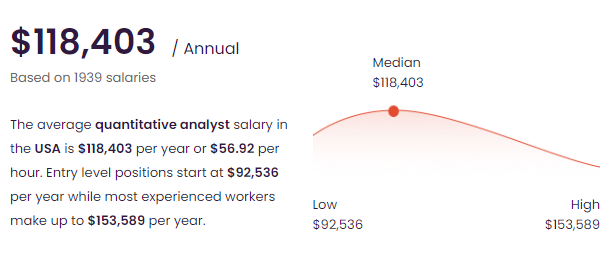
The average salary for a quantitative analyst is $118,400.
Sports Analyst
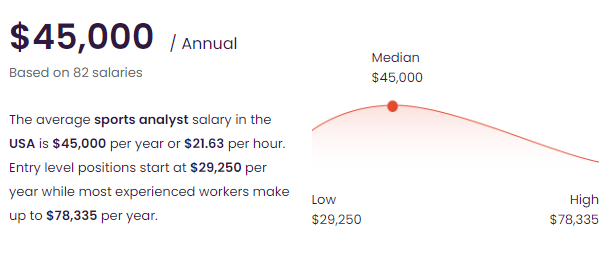
The average salary for a sports analyst is $45,000.
Data Engineer
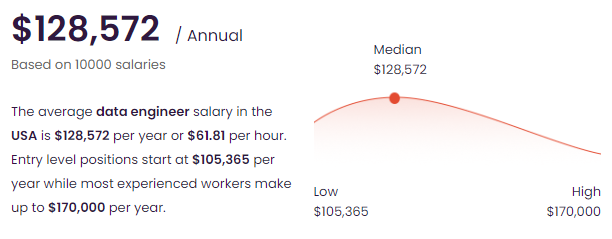
The average salary for a data engineer is $128,500.
Database Administrator
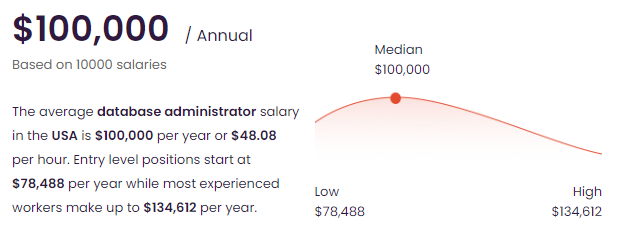
The average salary for a database administrator is $100,000.
Data Scientist

The average salary for a data scientist is $127,200.
Entry Level Data Analyst Salary – By Industry
Data analyst compensation differs greatly depending on the industry. Here are the salaries that you can expect to make in the industries that employ the largest number of data analysts:
Technology
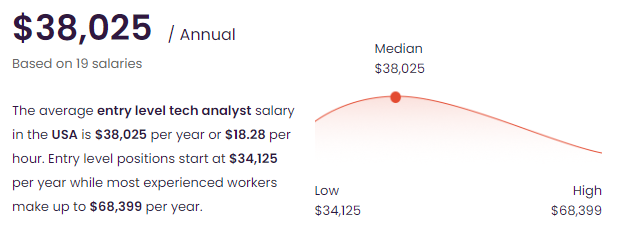
The average salary for an entry-level tech analyst is around $38,000.
Healthcare
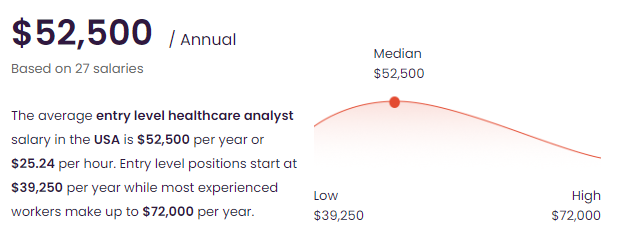
In healthcare, an entry-level data analyst can expect to make $52,500.
Manufacturing
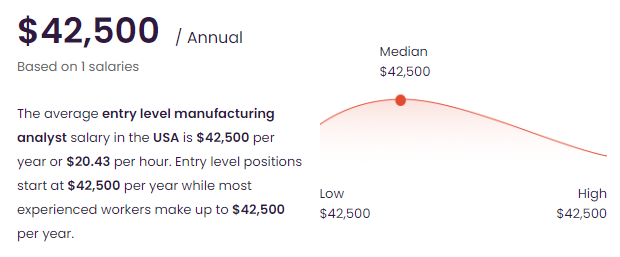
An entry-level data analyst in manufacturing can expect to make about $42,000.
Finance and Banking

Financial analysts can expect to make about $59,500 in an entry-level position.
Retail
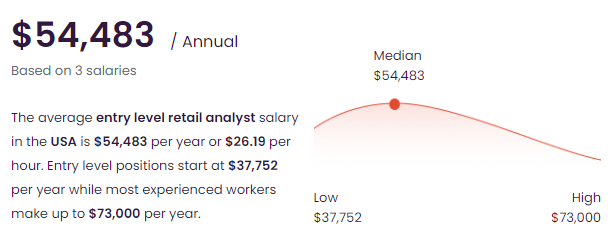
The average salary for entry-level retail analysts is about $54,400.
Entertainment

In the entertainment industry, an entry-level data analyst makes $49,200 on average.
Insurance

Entry-level data analysts in insurance make about $52,000.
Entry Level Data Analyst Salary – By Location

Salaries can differ greatly, depending on where you live. Many factors, including living expenses, can affect the average salary for an entry-level data analyst. These are a few examples of what pay you can expect globally.
USA

The entry-level pay for a data analyst in the US is $50,000 a year.
UK

In the UK, an entry-level data analyst can expect to make about $45,000 a year.

An entry-level data analyst’s salary in the UK in US dollars is $38,101.
Canada
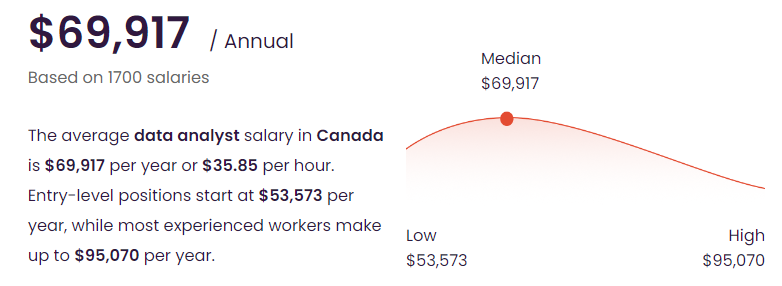
The average salary for an entry-level data analyst in Canada is $69,000 a year.
India

A data analyst in India can expect to make about $6,300 a year.

The average salary of Entry Business Data Analyst salary in India in US dollars is $4,598.
Spain

A data analyst in Spain can expect to make around $37,000 a year.

In terms of US dollars, a data analyst in Spain makes $36,037 yearly.
Netherlands

In the Netherlands, an entry-level data analyst makes about $45,200 a year.

In US dollars, the salary of an entry-level data analyst in the Netherlands amounts to $45,285.
South Africa

The average salary for an entry-level data analyst in South Africa is $20,500 a year.
China

In China, the average salary for an entry-level data analyst is $43,000 a year.
Qatar

In Qatar, an entry-level data analyst can expect to make about $14,000 a year.
Australia

An entry-level data analyst in Australia makes about $51,000 a year.

Brazil

Entry-level data analysts in Brazil are paid around $33,000 a year.

In US dollars, an entry-level data analyst in Brazil makes around $10,000.
Mauritius

In Mauritius, the average pay for a data analyst is about $12,000 a year.
Entry-Level Data Analyst Salary – By Education
Data analysts come from a wide variety of industries and educational backgrounds, making it difficult to know the exact salary to expect for your own unique background. Below, you’ll be able to see the average annual salary of an entry-level data analyst position at different levels of education.

No Degree
According to Salary.com, a data analyst with no formal degree can expect to earn between $56,000 and $61,000 a year. Many data analysts begin their careers successfully with no degree and achieve high-paying positions. Many go into their data analytics career without a degree and have little difficulty doing so. Through online degrees, bootcamps, and certificate programs, job seekers are able to develop the necessary analytical skills and find many job opportunities.
Bachelor’s Degree
A data analyst with a bachelor’s degree can expect to earn between $60,500 and $65,000 a year, according to Salary.com. A degree in science, math, of technology will certainly make you more hirable than a degree in the arts or humanities.
Master’s Degree
With a Master’s degree, you can expect to make between $61,600 and $66,300, according to Salary.com. Applicants who have completed a master’s degree can expect to start their career making more than those without. However, as with anything else that affects your salary, you’ll find the best results if you couple your masters with practical skills, projects, and a strong portfolio.
How to Boost Your Entry-Level Data Analyst Salary

Here are some of the best ways to boost your entry-level data analyst salary:
-
Choose the Right Industry
-
Develop and Polish Your Skills
-
Negotiation Is Key
-
Ask for a Salary Review
-
Gain More Experience
Choose the Right Industry
As you’ve seen, entry-level salaries for data analysts can vary depending on the industry that you work in. In addition to compensation, it’s important to consider your skills and interests. Choosing an industry where you can work and develop skills is incredibly important. Matching your interests and the compensation that you are looking for can help you to make the best decision about what entry-level data analyst roles you will apply for.
Develop and Polish Your Skills
A skilled data analyst is able to take data and deliver actionable insights. This requires you to go a step beyond knowing basic programming and data visualization skills that fit the basic data analyst job description.
One way to ensure your skills are developed well is to specialize. Taking a deep dive into certain aspects of the analytics sector through specialization can be a great way to make the most of your interests and your experience. Whether you have a background in a science field, writing, or if you have academic training, you’re sure to find some way that your experience can differentiate you as a data analyst and provide you with a unique insight into data analytics.
Negotiation Is Key
Take some time to review best negotiation practices and approach your job offers with the confidence that you’ll be able to achieve the salary that you deserve. With your knowledge of the average compensation for someone with your skills, you can make a good estimate of how much your position offers and how much you can expect to negotiate for. And, if you have one, this is a great time to consult with your career mentor, if you have one.
Ask For a Salary Review
While working in a data analytics position, it’s not uncommon to ask for a salary review. By having a supervisor or manager review your pay, you can show how your role may not be compensated at a rate that compares to the average entry-level data analyst salary in your industry.
Gain More Experience
When it comes to the analytics industry, experience is not difficult to come by. There are many data analysis projects, certification programs, and courses that you can complete to boost your skills and increase your base salary. The key is to never stop growing.
Get To Know Other Data Analytics Students
Jon Shepard
VP Of AI Research Strategy And Execution at J.P. Morgan
Cleo Valencia
Student In The Data Analytics Bootcamp at Springboard
Sarah Savage
Content Data Analyst at EdX
FAQs About Entry-Level Data Analyst Salary
We’ve answered some of the most commonly asked questions about entry-level data analyst salaries below.
Is Working as a Data Analyst Stressful?
It can be. Data analysts have clear data points and results to show their skills, so whether or not the job is stressful depends on whether or not that’s the kind of environment where you thrive.
Can I Become a Data Analyst Without a Degree?
Yes! It’s very possible to become a data analyst without a degree. If you don’t have a degree, consider a data analytics bootcamp to gain the necessary knowledge and skills. Combine this with your experience, portfolio, and soft skills to land a data analyst job.
Does Data Analytics Require Coding?
Knowing how to work with Python, R, and SQL can greatly raise your chances of landing a data analytics position. There are several key skills that employers will expect an applicant to have. A basic knowledge of these three programming languages, a knowledge of excel, and a knowledge of some key mathematics concepts are the fundamental skills that you should have when pursuing a data analyst position.
Since you’re here…
Interested in a career in data analytics? You will be after scanning this data analytics salary guide. When you’re serious about getting a job, look into our 40-hour Intro to Data Analytics Course for total beginners, or our mentor-led Data Analytics Bootcamp.






